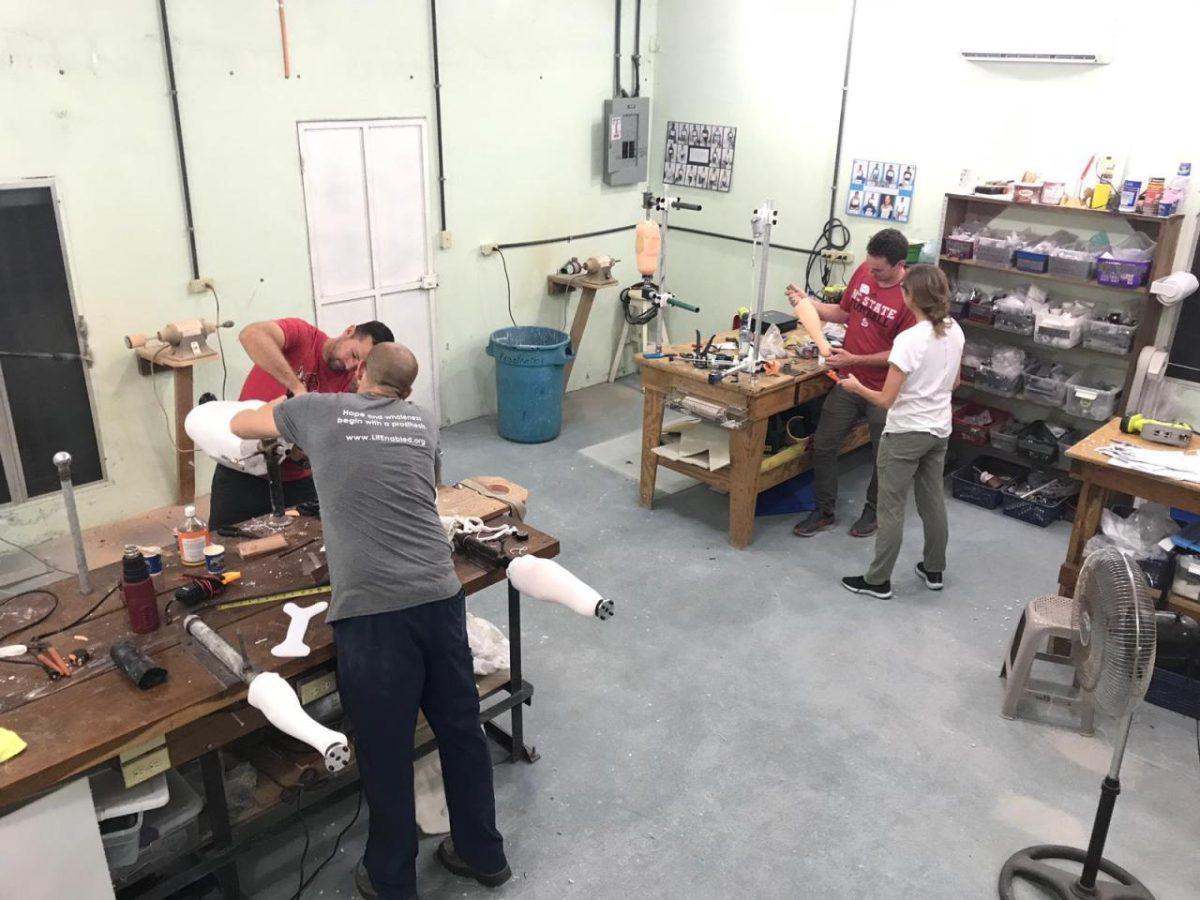OpenGait, a startup company founded by a current graduate student and two recent alumni are developing accessible prosthetics for above-the-knee amputees around the world.
Current Ph.D. student Aaron Fleming of the joint Department of Biomedical Engineering at UNC-Chapel Hill and NC State, alumna of the same program Lindsay Sullivan, and Dustin Prescott, a recent MBA graduate from NC State, all co-founded OpenGait after meeting in 2017 through a course called Product Innovation Lab.
In the multidisciplinary design class, they all worked on a project involving amputees, which led them to the idea and creation of OpenGait.
“After the semester ended, Lindsay, Dustin and I continued the project and continued to try to develop the prosthetic socket that came out of the class,” Fleming said. “We’ve been working on it still up until now and are applying for different fundings to be able to make better designs and to test out the designs as well.”
Fleming and Sullivan said their class together, along with the connections they formed with many professors in the graduate program at NC State, brought them a multitude of opportunities and resources, which helped them get to where they are today with OpenGait.
Sullivan lauded the production innovation course.
“The unique way that the course functions and that you have exposure to so many mentors who really are willing to help you after the course ends; I think they were instrumental in helping us keep moving forward,” Sullivan said.
Many professors connected the three students to funding resources to kick-start their company, while providing feedback on their business model as well.
“It’s been amazing how helpful and attentive professors were, even after class was over,” Fleming said. “They have really continued to give us great advice and guidance as we have continued.”
During the course, they were also introduced to the nonprofit organization LifeNabled, which has partnered with OpenGait to support them as they grow.
“When we were first introduced to these two prosthetists [from LifeNabled], they started talking about the work they do in Guatemala, where they travel twice a year to donate prosthetic devices, and just hearing about their work, the patients that they serve and the problem they were trying to solve, I think really just sparked an interest for all three of us,” Sullivan said.
Fleming also said the trip to Guatemala was fulfilling and a big point in the journey with OpenGait.
“While we were there with [LifeNabled], they actually put us to work, which was good because we got to learn the entire process for making the traditional socket in that context specifically, so we could get even more of an idea of how our socket could help that process,” Fleming said.
A primary problem Fleming and Sullivan both said they want to focus on is training for people who want to become clinicians to help amputees.
In the future, Fleming, Sullivan and Prescott said they hope to reach different parts of the world to help amputees in need who may not have easy access to prosthetics.
They plan to accomplish their goals by working with organizations to deliver prosthetic kits to people and are currently working on a prosthetic kit which will include the necessary parts needed for above-the knee-amputees.
Amputees have to travel long distances to see clinicians, oftentimes without a car or public transportation. With OpenGait’s prosthetic kits, they will be able to deliver the kits directly to the amputees instead.
“What we’re trying to do is develop a system where we can come in with all the components necessary to make a socket right then and there and in a matter of a couple of hours be able to fit the socket to an amputee,” Fleming said.
Fleming and Sullivan also said the Entrepreneurship Garage on campus and the Office of Commercialized Research are both useful resources for students in biomedical engineering to reach out to if they want to pursue possible future careers while still in college.
“If you are ever working on a course project and you feel like you should take it further, don’t be scared to try,” Sullivan said.








